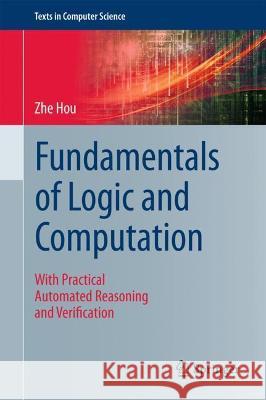Fundamentals of Logic and Computation: With Practical Automated Reasoning and Verification » książka
topmenu
Fundamentals of Logic and Computation: With Practical Automated Reasoning and Verification
ISBN-13: 9783030878818 / Angielski / Twarda / 2021 / 232 str.
Fundamentals of Logic and Computation: With Practical Automated Reasoning and Verification
ISBN-13: 9783030878818 / Angielski / Twarda / 2021 / 232 str.
cena 241,50
(netto: 230,00 VAT: 5%)
Najniższa cena z 30 dni: 231,29
(netto: 230,00 VAT: 5%)
Najniższa cena z 30 dni: 231,29
Termin realizacji zamówienia:
ok. 16-18 dni roboczych.
ok. 16-18 dni roboczych.
Darmowa dostawa!
This textbook aims to help the reader develop an in-depth understanding of logical reasoning and gain knowledge of the theory of computation. The book combines theoretical teaching and practical exercises; the latter is realised in Isabelle/HOL, a modern theorem prover, and PAT, an industry-scale model checker. I also give entry-level tutorials on the two software to help the reader get started. By the end of the book, the reader should be proficient in both software. Content-wise, this book focuses on the syntax, semantics and proof theory of various logics; automata theory, formal languages, computability and complexity. The final chapter closes the gap with a discussion on the insight that links logic with computation. This book is written for a high-level undergraduate course or a Master's course. The hybrid skill set of practical theorem proving and model checking should be helpful for the future of readers should they pursue a research career or engineering in formal methods.











